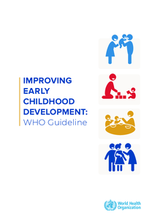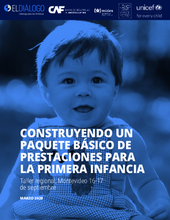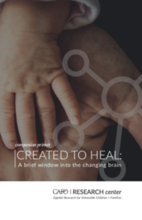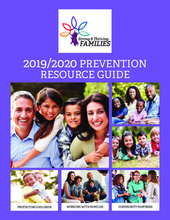Displaying 61 - 70 of 490
This guideline provides direction for strengthening policies and programmes to better address early childhood development.
El Diálogo Interamericano y UNICEF han conformado una alianza orientada a fortalecer la construcción y la implementación de políticas integrales de la primera infancia basada en evidencia, en los países de la región. En esa línea, se convocó un Taller regional en Uruguay. Este documento presenta los principales elementos destacados y discutidos en la reunión y los aspectos en los cuales hay un mayor acuerdo entre los expertos participantes del taller.
In this study, autobiographical memory tests, working memory, and a depressive symptom assessment were administered to 48 adolescents in care with a history of maltreatment (22 abused and 26 neglected) without mental disorder, who had been removed from their family and were living in residential child care, and to 61 adolescents nonmaltreated who had never been placed in care.
This episode of The Brain Architects explores what “toxic stress” means, and what we can do about it.
This study zeroes in on the issue of left-behind children and draws on data from the China Family Panel Studies surveys to examine the impacts of parental absence on child development in psychological, physical and cognitive domains.
This 'companion primer' from the Christian Alliance for Orphans (CAFO) provides an overview of the ways in which adversity impacts brain development and how the use of appropriate interventions based on relationships can help reshape children's brains, leading to greater wellbeing and better outcomes for kids from hard places.
This study explores the development of abused children in different areas. Likewise, it looks into differences of the level of development in relation to age, gender and type of abuse.
This study examined the long-term effects of the Head Start early childhood program on foster children's developmental outcomes from ages 3–4 to 8–9.
This Resource Guide offers support to community service providers as they work with parents, caregivers, and children to prevent child maltreatment and promote social and emotional well-being.
This Module explores how cognitive and social-emotional abilities operate in youth’s daily experience and personal lives and what we can do to help young people develop and strengthen these skills in order to thrive.




